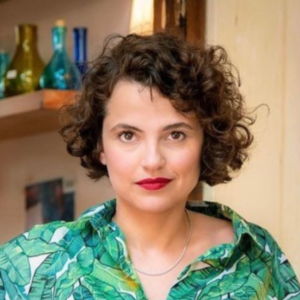
Nagi Moubarak has recently launched Outerpond, a free online platform, that helps Lebanon-based companies and startups in finding requests for proposals, tenders, projects, and partnership opportunities outside Lebanon, after seeing how badly the multiple crises hit the private sector in Lebanon.
Putting three decades of professional experience in management consulting, business strategies, data mining, and business apps conception and development into good use, Naji launched Outerpond in July 2021.
We caught up with Nagi to talk about his pre-launch journey, challenges, funding, traction, competition among a few.
Q: What does Outerpond do in your words?
A: Outerpond is a B2B enabling platform allowing Lebanon-based companies and startups to find opportunities featured by Service Seekers (Foreign-based entities). The concept is not rocket science but is extremely useful, especially for Lebanese companies and startups during these challenging economic times.
Q: How did you get inspired to create it?
A: I split my time between Montreal and Beirut, and it so happened that on August 4th, 2020, I was in Lebanon, with my wife. Same as anyone in Lebanon and around the world, I was shocked and angry by the extent of the damage, the lives stolen or destroyed, and the sheer magnitude of the event. I was nonetheless excited to see how the Lebanese banded together and immediately took the huge task of cleaning, rebuilding, easing the suffering, and sending tons of aid to Lebanon.
Their work, in addition to that of well-established foreign NGOs and countries who took the plight of the people at heart, had a tangible impact in alleviating the suffering.
I felt an urge to help, and I used my entrepreneurial hat to zero in on a segment that was critically left aside: The private sector. Any economy needs its private sector to thrive and grow. However, in Lebanon, it seems to have been taken for granted for so many years. The port explosion, coupled with the monetary crisis, was a compound hit, and nobody seemed to worry about this hugely important sector that was being heavily battered. This led me to want to create a platform that would allow Lebanese companies and startups to find opportunities, sustain themselves, earn hard currencies, pay their employees, meet potential partners abroad, as well as potential financial backers. These were the driving elements behind the creation of Outerpond.
Q: How many people are part of the team?
A: There are no co-founders. There are however key people, specifically my wife, my daughter, and my son, who has been extremely supportive of the budding Outerpond concept and encouraged me to turn the idea into reality. Once the concept was validated at that initial level, I started looking for early supporters who could become an unofficial resource, that I could turn to whenever needed. The first two were Constantin Salameh and Ramy Boujawdeh. On the IT front it was Bassem Berbari, and later, additional early supporters joined based on their genuine belief in the platform’s aims, complementary fields of expertise, and gender balance, namely: Ghada Beaino, Michele Char, Maxine Chehab, Antoine Tayyar, Johanna von Toggenburg, and Tina Sweis.
There are also the people who were enthusiastic about the idea, but due to their professional affiliation, could not officially become part of the Early Supporters group. People like Samia, Issam, Aziz, Frederic, Joe, and Nadim acted like an unknown soldier.
Q: How do you differentiate yourself from competitors?
A: Before launching Outerpond, I researched the existing landscape. On the international level, there are a couple of platforms that feature bids on behalf of governments. These bids however are most of the time megaprojects that could not have constituted a proper pool of opportunities to Lebanese businesses and startups, if only due to the size of the bids. So, this model was out.
There were also global freelancing platforms, which provided an extremely competitive marketplace. This model was also out. There was also an interesting Lebanon-driven initiative, which focused exclusively on finding jobs for Lebanese talent. My aim was not to copy a successful concept, especially that my focus was B2B, not freelancers. This avenue was also dropped.
Finally, around the time we launched the coding of the platform, there was another initiative that was featured in the media, and which provided Lebanese talent with a way to feature their profile on their platform mostly like a directory of talent. Being a simple directory was not part of our mission, so that model was not considered a direct competitor. We wanted to focus on the core B2B segment, and we wanted to encourage foreign-based companies to create their own opportunities on the platform, to have an immediate positive impact, not only on the companies and startups but also on their employees and families.
Another differentiator is the partnership we have with Entelligence s.a.r.l. A rare breed of developers who could turn a complex backend into a user-friendly front-end. The result is a user-friendly powerful platform, with multilevel search capabilities, an internal messaging system, and other advanced tools for users to benefit from.
Q: How do you plan to stay sustainable?
A: On Outerpond, one of our biggest differentiators with other platforms is the supply side, made up of the real opportunities featured by foreign-based Service Seekers. So as long as there are entities worldwide, featuring their opportunities on Outerpond, we will be sustainable, grow and have a positive impact on the Lebanese private sector.
Q: What kind of business model are you implementing?
A: From a pure monetization angle, we are following a freemium model. Meaning any account a company creates will be free for life. There will nonetheless be in the future additional services and perks that might be of interest to the members, these additional services will carry a small fee, but will not affect the standard use of the platform.
Q: What was your initial funding resource?
A: The present funding is exclusively a personal one which is a testimony to the backing of my family in believing in Outerpond.
Q: How are you getting the word out/ marketing your product?
A: We have soft-launched on July 16, 2021, so we are really into our earliest stages of development. We rely a lot on our core partners to spread the news, especially in professional circles, such as LinkedIn and to a lesser extent on Twitter. Some partners are also about to launch their own events to promote Outerpond with their members and constituencies and in the media.
Q: What have your biggest challenges been?
A: The biggest challenge has been to sell “Lebanon Inc.” to foreign-based entities. That said, in a little over a month, we have had dozens of opportunities featured on Outerpond on behalf of Service Seekers, and the cumulative total amount has exceeded $750,000. This amount might seem minor compared to budgets spent by international aid agencies and donors, however, the more Partners and Service Seekers we can attract, the more opportunities we will have, and the greater impact will be created in the Lebanese private sector and the economy.
Q: What are your plans for the coming year?
A: We want to focus on maintaining a useful practical platform, for Service Providers and Service Seekers, add a few quality partners, including international agencies, move beyond a million dollars in featured opportunities and assess a regional expansion.
Q: What kind of advice would you give to startups going through the current crisis in Lebanon?
A: Keep at it! Create a concept, share it with your inner circle, create a Proof of concept (PoC), listen to your users, and attract practical advisors to help you minimize your potential flaws, especially early on.
You will feel down, you might feel that your closest friends do not take you seriously but that is exactly why it is challenging, yet fun to be an entrepreneur.
Always, always think that Jeff Bezos went through exactly what you might be going through, Steve Jobs most certainly, and even the obscure neighbor who suddenly might become an instant success for her invention, had moments of doubt, fear, but also excitement and drive.
Give yourself enough time to succeed and do not fall in love with the concept if it turns out to be a dud. Pick yourself up and start anew. You are bound to succeed.









